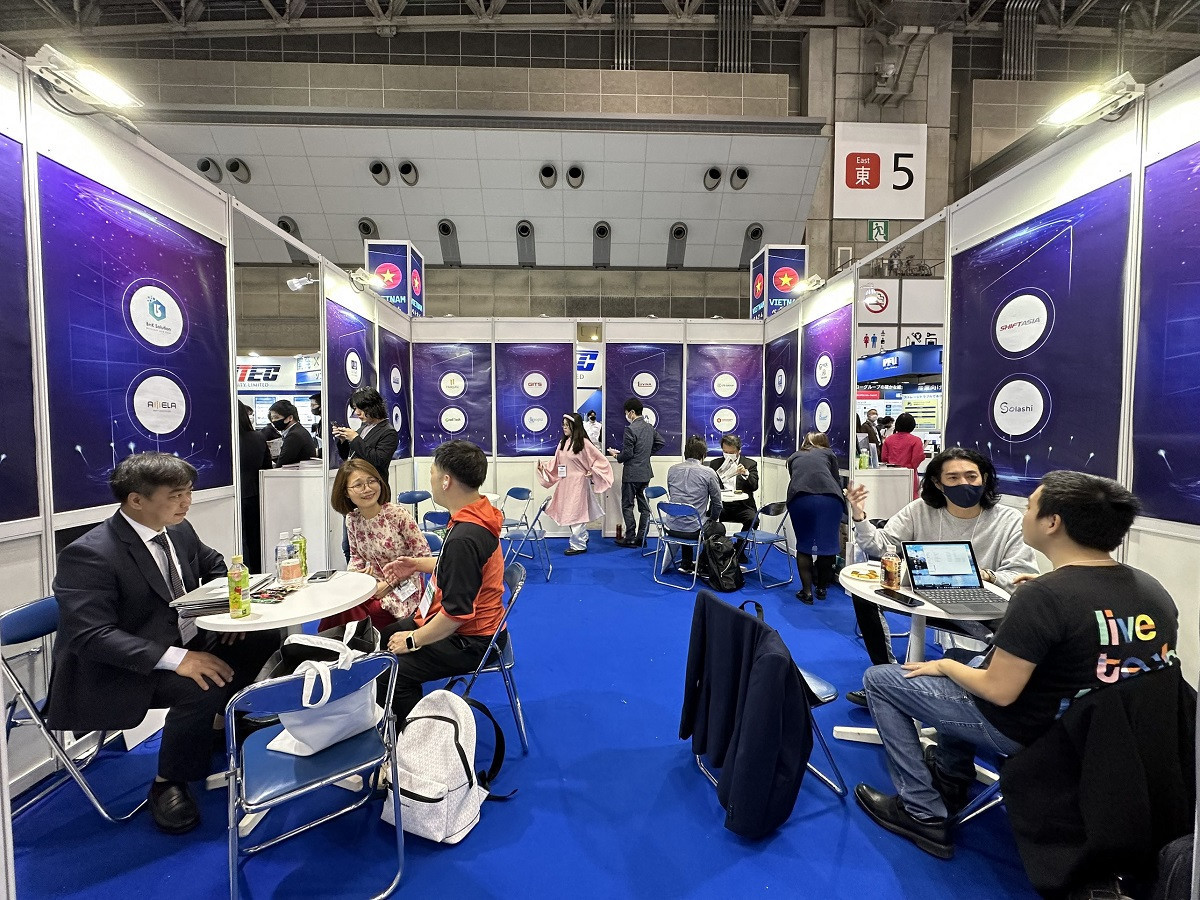
Part 1: Vietnam’s tech firms still top choice for Japanese IT partners
“Vietnamese IT firms have an operation scale large enough to satisfy requirements on digital transformation for Japanese enterprises,” said An Ngoc Thao from Vinasa (Vietnam Software and IT Service Association), adding that Vietnamese IT firms working as partners for Japanese enterprises mostly have 100 workers or more.
Regarding the qualifications of Vietnam’s IT engineers, Thao said previously Vietnam only had developers and testers, but now Vietnam can provide system architects as well. They can sit together with Japanese enterprises to research and develop systems, modernize old systems and design new models.
Thao went on to say that Vietnam’s IT firms have all favorable conditions to speed up their development in the Japanese market. It is estimated that the existing 168 universities and 520 junior colleges and vocational schools (according to the Ministry of Information and Communications) can produce 84,000 IT engineers each year.
The training curricula of many schools are very practical which can satisfy the requirements of Japanese enterprises. Also, Japanese language skills are no longer a big problem for Vietnamese engineers as many of them can communicate well in Japanese.
“There are two great business development opportunities in Japan now awaiting Vietnam’s IT firms,” Thao said.
The first is modernizing long lasting systems in Japan.
In 1970s-1980s, some Japanese large sectors such as manufacturing, financing and retail were one step ahead of the world. However, because of the large scale, the process of modernizing the system was going slowly more than other countries.
The Japanese banking system, for example, has scale of trillions of dollars, and any minor change will have an adverse impact on agencies, enterprises and people, so managers have to carefully consider before making decisions on renovation.
In the manufacturing sector, Japanese enterprises have completed automation of the production process, but they still cannot take the next necessary step – optimizing the entire system and utilizing new technologies to set up a new production model and new products, thus improving adaptation and competitiveness.
Meanwhile, Vietnamese enterprises can work together with Japanese enterprises and find new technological solutions for them.
The second oppotunity is combining digital transformation and green transition, striving for ESG (environment, social, governance).
The Japanese government has set the goal of obtaining net-zero emissions by 2050 and reducing emissions considerably by 2035.
Japanese enterprises, especially manufacturers, now have to mull over solutions to questions related to green and sustainable development standards, such as modernizing the production system to protect the environment; and utilizing technology to optimize the enterprises’ internal administration systems (manpower, machine, equipment, energy) in accordance with current ESG standards.
Barriers
Thao, while affirming that this is a big market for Vietnam’s IT firms, stressed that the firms need to solve some big problems if they want to successfully conquer the Japanese market.
First, material infrastructure. Eighty percent of revenue of the Japanese IT outsourcing market goes to Chinese firms. China not only has highly-qualified workers, but also has large hardware infrastructure (office, equipment, ecosystem of suppliers) and large technological infrastructure.
Meanwhile, Vietnam’s IT firms still don’t have adequate infrastructure to undertake big projects from Japanese enterprises. Few IT firms have buildings of their own with independent facilities and manufacturing centers with thousands of workers.
The majority of IT outsourcing firms still don’t participate in solving big questions. For example, Japanese games target millions of people, while Vietnamese games’ scale is much smaller.
Vietnam IT firms’ solutions to production are not deployed on a large scale with hundreds of factories all over the globe and hundreds of thousand of laborers.
The other problem of Vietnam’s IT firms is that while Vietnamese engineers are very good at technology, they lack in-depth professional knowledge, for example, knowledge in finance and insurance.
To solve the problem, Vinasa encourages Vietnam’s IT firms to cooperate with Japanese enterprises, and allow Japanese experts in many different fields to sit together with Vietnamese technology experts about research and development..
Vietnam’s outsourcing firms have also been encouraged to cooperate with other Vietnamese firms which have products and solutions in the fields of fintech, agritech, and e-commerce in the ‘Go Global’ itinerary.
Overall, according to Thao, Vietnamese enterprises need to have a ‘play big’ spirit.
Binh Minh